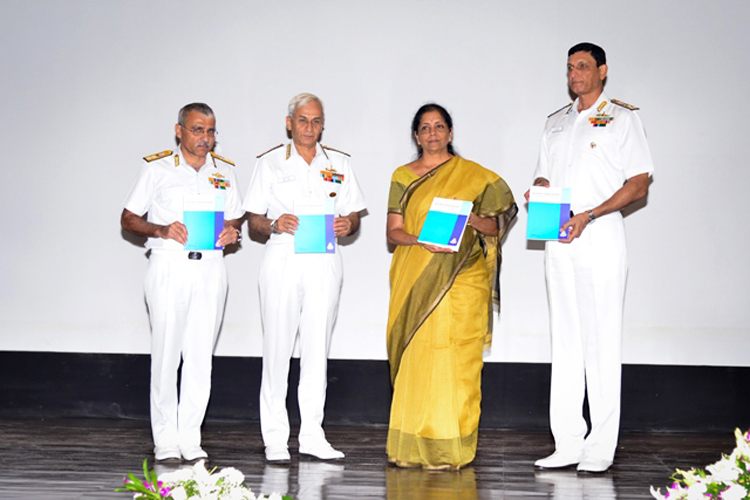INDIAN ARMED FORCES CHIEFS ON OUR RELENTLESS AND FOCUSED PUBLISHING EFFORTS

The insightful articles, inspiring narrations and analytical perspectives presented by the Editorial Team, establish an alluring connect with the reader. My compliments and best wishes to SP Guide Publications.

"Over the past 60 years, the growth of SP Guide Publications has mirrored the rising stature of Indian Navy. Its well-researched and informative magazines on Defence and Aerospace sector have served to shape an educated opinion of our military personnel, policy makers and the public alike. I wish SP's Publication team continued success, fair winds and following seas in all future endeavour!"

Since, its inception in 1964, SP Guide Publications has consistently demonstrated commitment to high-quality journalism in the aerospace and defence sectors, earning a well-deserved reputation as Asia's largest media house in this domain. I wish SP Guide Publications continued success in its pursuit of excellence.
- Appointments Committee of Cabinet approves one-month extension in service of Chief of the Army Staff
- Admiral Dinesh K. Tripathi assumes Command of the Indian Navy as 26th Chief of the Naval Staff
- Prime Minister witnesses 'Bharat Shakti' – a Tri-Services Firing and Manoeuvre Exercise in Pokhran, Rajasthan
- Interim Defence Budget 2024-25 — An Analysis
- Union Defence budget 2024
- Prime Minister Modi Commemorates Indian Navy Day in a Grand Ceremony
Defence Minister inaugurates Goa Maritime Conclave

Inaugurating the Goa Maritime Conclave (GMC), the Minister of Defence, Nirmala Sitharaman said that it aimed to bring together like minded nations to evolve and formulate collective responses to challenges in the maritime domain. It would also provide an opportunity to communicate India’s viewpoints and collectively shape a favourable maritime environment for countries in the region.
The November 1 conclave on ‘Regional Maritime Challenges’ saw speakers such as Admiral Arun Prakash (Retd), Admiral Dr Jayanth Colombage (Retd) of Sri Lanka, Admiral Md Khurshed Alam of Bangladesh, Professor Ashley J. Tellis, Dr C. Raja Mohan, Professor Harsh V. Pant and Dr Christian Bueger.
The Minister said that the Indian Ocean region (IOR) has progressively gained centre-stage largely due to the political impact of its regional dynamics on international geo-politics. The future of the world will be shaped, to a large extent, by the political and economic interactions between the stake holders in the IOR.
She added “On land, the unresolved borders and riparian disputes which are predominantly a legacy of the colonial era are some of the key causes of conflict. Further, this impasse in international relationships, is a product of many causes such as ideological differences, political insecurities, economic dependency, technological dependencies, inequitable access to resources, geographical imperatives etc. The net impact of these differences is that trust deficit and tensions between nations continue to persist, on account of perceived challenges to sovereignty, despite positive economic interactions between them. As international behaviour in the maritime medium is influenced considerably by land based imperatives, cordially or latent hostility prevalent amongst countries on land tends to be reflected in the seas.”
She said the GMC should evaluate the impact of emerging maritime security architectures on overcoming maritime security challenges; sort out differences; capitalise on commonalities; tap intellectual capital and evolve customised solutions rather than imported solutions.
Admiral Sunil Lanba, Chief of the Naval Staff said that there is a perceptible lack of formal arrangements with respect to engagement between littoral navies of the south and south eastern IOR and the GMC aimed at bridging this gap. There was need for creation of comprehensive infrastructure, equipping the force with technology and investing in quality training while exercising financial prudence. Making large and long term financial commitments to counter specific threats from perceived adversaries may not necessarily yield the desired results in the future, hence it would be wiser to adhere to long term plan which is underpinned by a clear assessment of desired capabilities.





